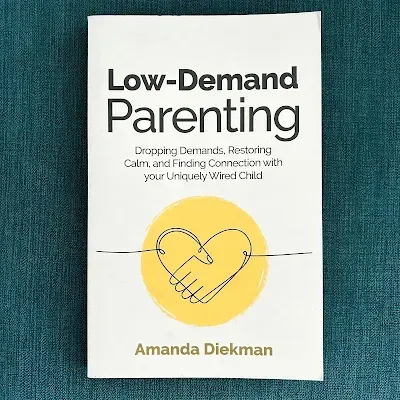Grief in parenthood

Content warning: This article explores some sensitive topics. Please take care of yourself while reading.
Grief is a much-misunderstood emotion in mainstream Australian culture. It is considered a ‘negative emotion’ and associated with a loved one dying — sometimes to the exclusion of all other experiences.
But the reality is that many life experiences can cause us to grieve, even experiences that we enjoy and/or choose.
This article is about some of the grief involved in the path of parenthood.
Grief comes from loss
Some readily recognisable experiences of grief in parenthood are death of a child, stillbirth and miscarriage. These experiences deserve to be honoured.
However, they are not the only experiences in parenthood that can cause us to feel grief.
Grief can be experienced as a result of any sort of loss.
One form of loss is change of circumstances. When life changes, we lose ‘things as they were’. This means that even welcome changes can bring feelings of grief [1].
For example, becoming a parent for the first time, even by bringing into your life a much-loved and much-wanted child, can cause you to grieve for the life you had before you were a parent. That life is gone and it is never coming back.
We can also grieve the loss of an imagined future. Trying to conceive for any period of time can involve grief, because every month you don’t conceive, your cherished vision of the future is gone.
Complicated grief
We can make an informed decision and still grieve the results. We can make that decision knowing we will grieve the results.
An example of this is deciding to get an abortion and grieving the loss of the pregnancy and the imagined future that would have happened if we had kept that pregnancy. This is not the same as regret. It might feel like I know I made the right decision given the circumstances, but I still feel a deep sense of loss.
Grief is does not need to ‘make sense’ in order to be felt.
Avoiding grief
There is no denying that grief is an unpleasant emotion. There might be a temptation for some of us to make life decisions according to what we think will help us avoid grief.
However, we don’t have ultimate control over our circumstances. Life happens to us all.
Also, sometimes we have a choice between two options and whichever way we chooser, we risk experiencing grief. For example, deciding not to add another child to the family means saying goodbye to the baby phase forever, never bodyfeeding/breastfeeding again, maybe letting go of your cherished idea of what kind of family you imagined having. But also, making the opposite decision, that of having another child, means saying goodbye to your current family as it is.
Another strategy we sometimes use to avoid the unpleasantness of grief is to push those awful feelings down when they arise. This is a valid desire. It can be especially hard to process our difficult feelings when we are lacking a safe space to express them.
When you are ready and able to deal with the emotions that have been handed to you, though, you might find a sense of freedom on the other side.
Processing grief
There are ways to process grief as the emotion arises in the moment, and also ways to grieve major life events — tragedies and transitions.
Below are some ideas on how to process grief. Engage with these ideas if you desire to, or feel free to scroll through to the next section.
Processing grief in the moment
A first step of processing grief in the moment can be identifying that grief is what you are feeling. It might feel like sadness, or a sense of haunting emptiness or loss, but it might feel like anger or some other emotion. One way to identify the feeling is to recognise when your loss is coming to mind.
It is possible to process the emotion in the moment is by extending the love and care to yourself that you would to a child who is experiencing a strong, difficult emotion. You can do this by validating the emotion and the difficulty of the experience, and offering unconditional love towards yourself: ‘I love you. I am here for you. You’re having a hard time. Yes, it is awful what happened to you.’
Another way to process your grief in the moment is to reach out to someone in your life who loves and supports you. Sometimes when we are ‘in the moment’ it can feel very vulnerable to reach out. They are too busy, they don’t want to hear about it, I don’t even know what to say.
One way to get around these barriers is to talk to someone you trust before the huge waves of feelings arise. ‘Can I call you if I am really struggling in a moment, even if it is just to cry on the phone?’ Or for times when we don’t have any words: ‘Can I send you emojis to let you know how I am feeling when I am having a tough moment?’
Processing grief through ritual and ceremony
Rituals and ceremonies that honour the grief you are experiencing are available to you, even if you do not have a culture or religion that can provide you with what you need in this area. As creative people, we can make our own rituals and ceremonies and they are as meaningful as the meaning we ascribe to them.
It is possible to engage in a healing ritual or ceremony by yourself. You don’t need to wait for anyone else to start caring for yourself. But most people have at least one person who loves them and would jump at the opportunity to support them.
Some examples of a grieving ritual:
-> Writing a letter and burning it
-> Having a friend host a gathering with either the two of you or a group of your supportive loved ones to honour you and what you have gone through (see below for more information on facilitated gatherings)
-> Going to a bridge over a river and dropping flowers in the stream
These are just a few ideas, not to be limited by but to start you off in your own creative exploration.
Reflection questions
For journalling and/or discussion with a friend/partner:
- What are some losses you have experienced? Be expansive and inclusive if you want – you can explore losses that you might not have previously considered to be losses, including losses that result from desired and positive experiences.
- What has your experience of grieving these losses been like for you?
- Do you have the desire to dedicate some time and space for ritual to acknowledge and process grief you have gone through? If you were to do so, what might that look like? Would you do it alone, or with one other person, or with a group of supportive loved ones?
My services
As part of my paid services, I facilitate bespoke gatherings to honour your grief from any loss or life transition you have experienced. These can be done one-on-one or I can facilitate a circle with people who love you and want to support you.
I also offer a six-session weekly Queer Parents’ Circle, which is a chance to form deep connections with like-minded people in a facilitated, inclusive environment. One of the topics we explore is ‘Strong Emotions in Parenthood’ which includes grief. The next Queer Parents’ Circle will start in October. If you are interested please email me for more information (emmelinetylerpostpartum at gmail dot com).
For more information about my services, click here.
[1] I learned this concept of ‘change -> loss -> grief’ from Newborn Mothers Educator Amanda Stinton when I was studying Postpartum Education and Care Professional Training. (This is an affiliate link).
